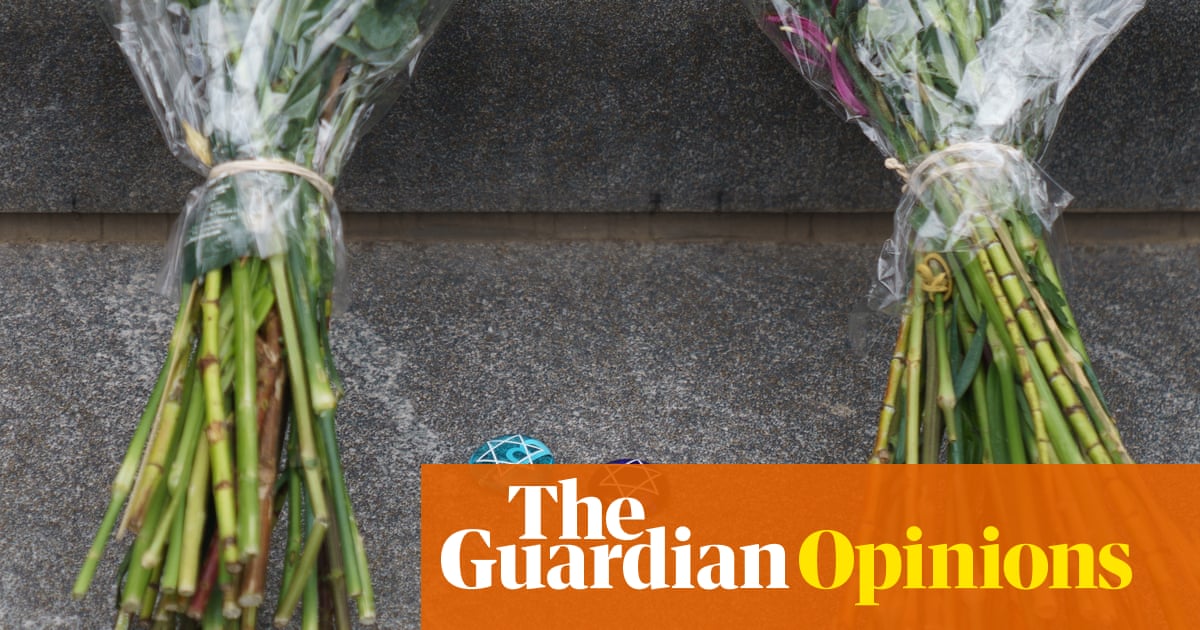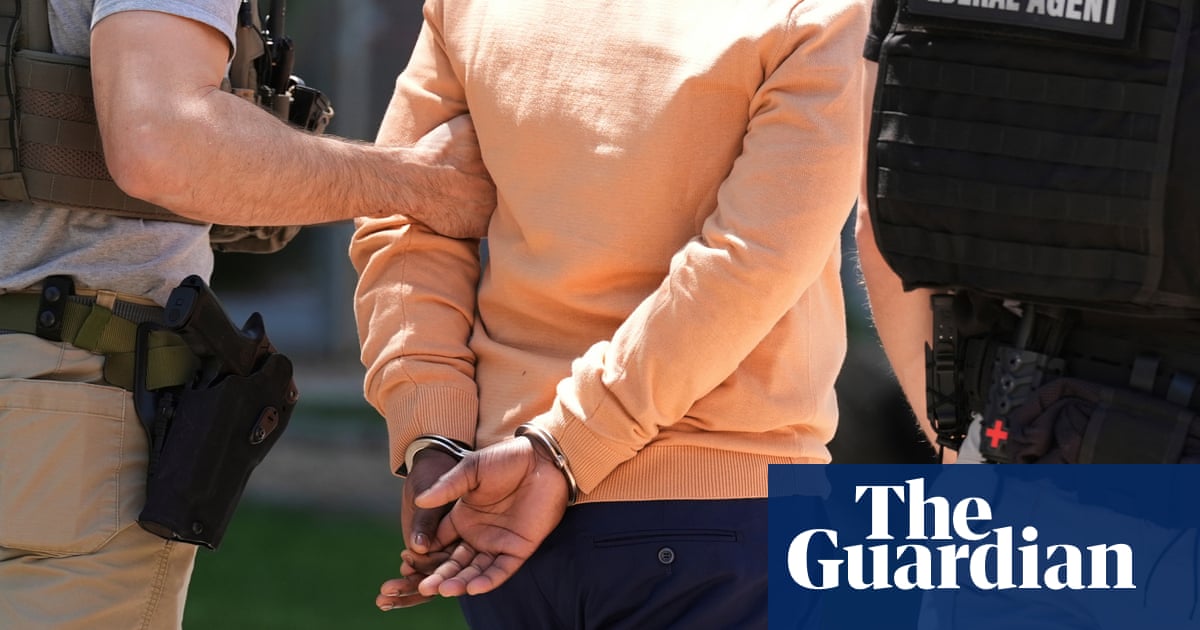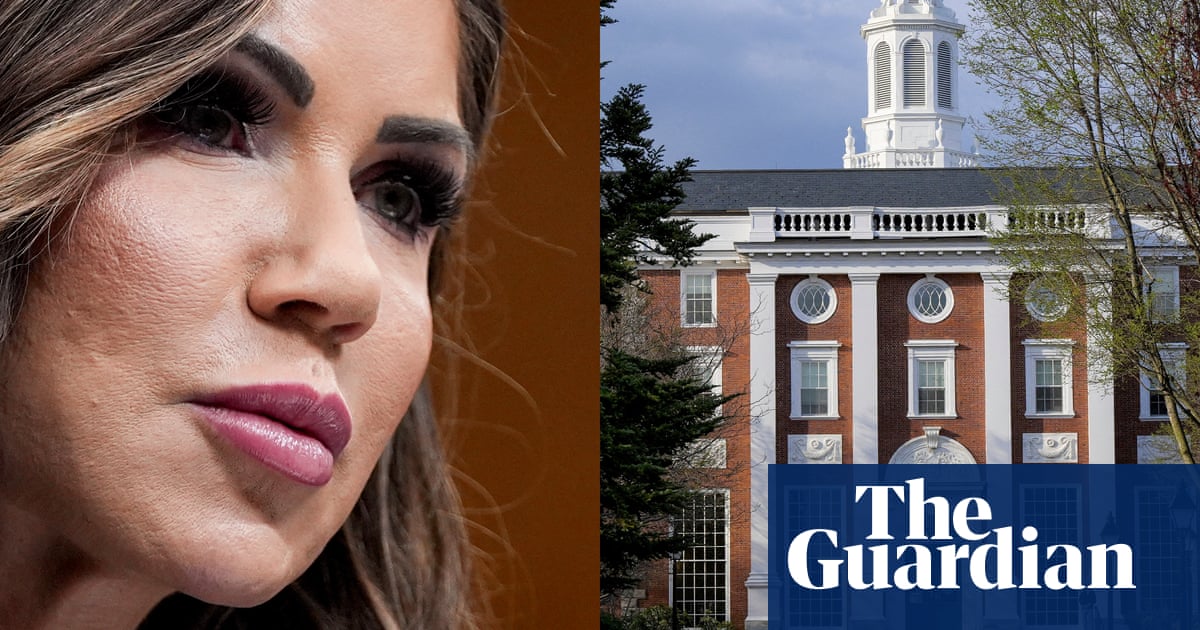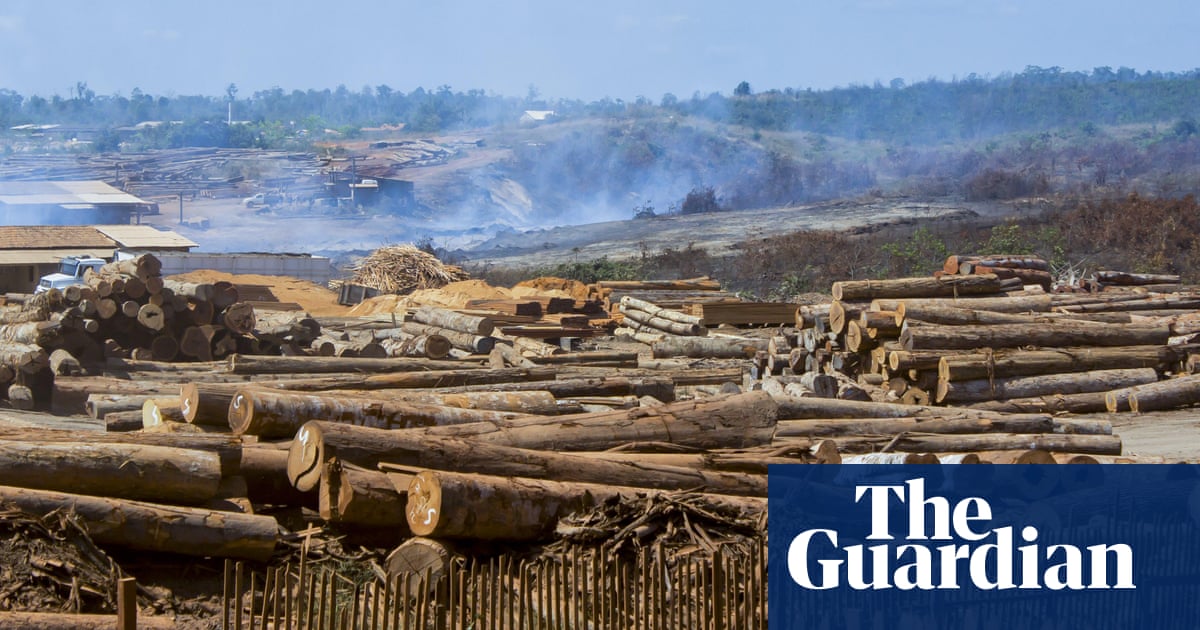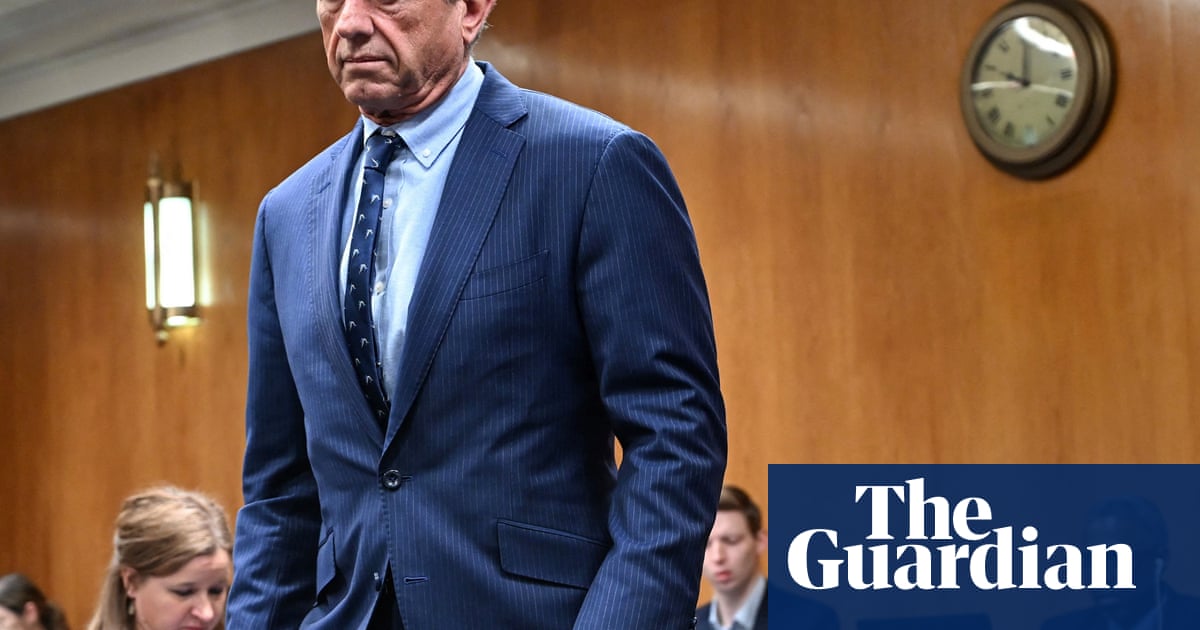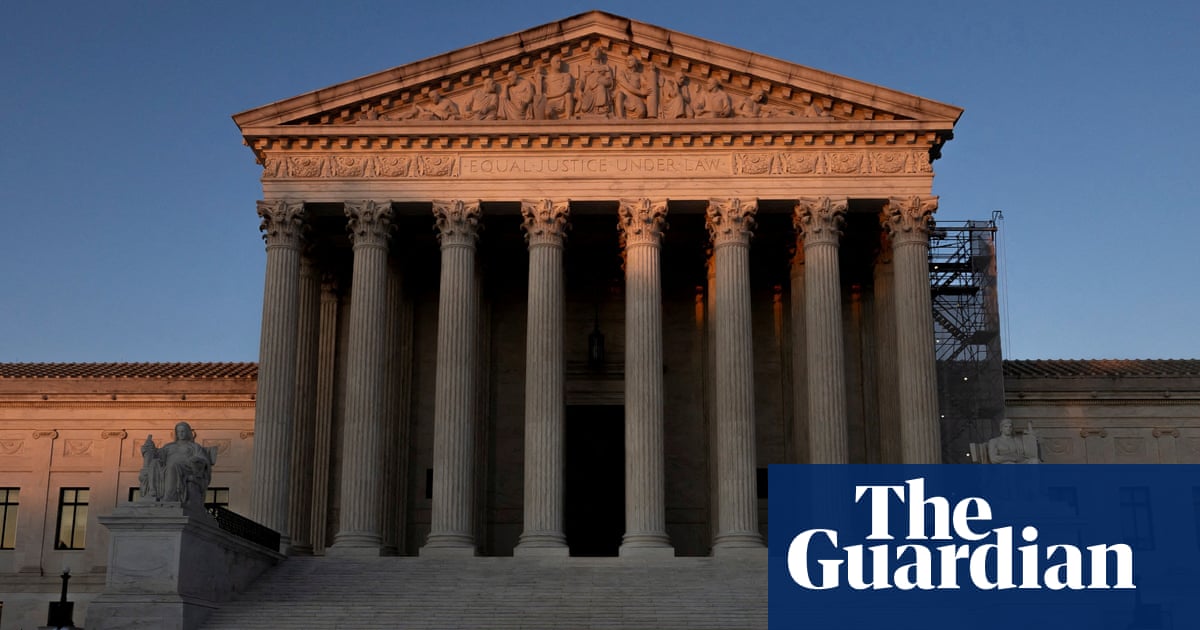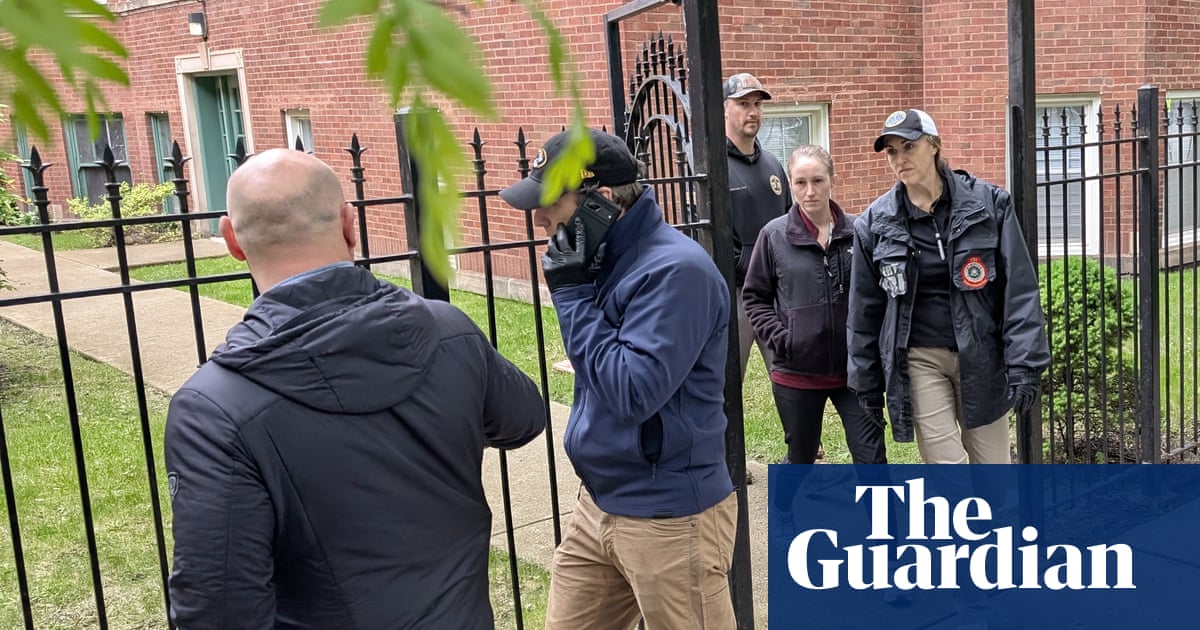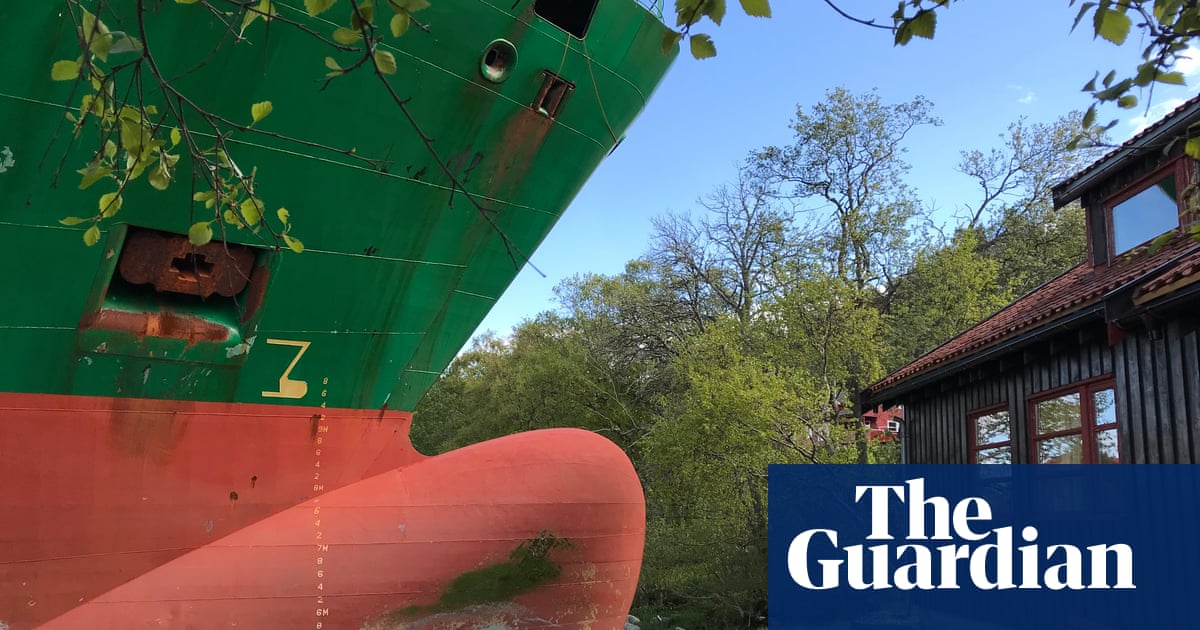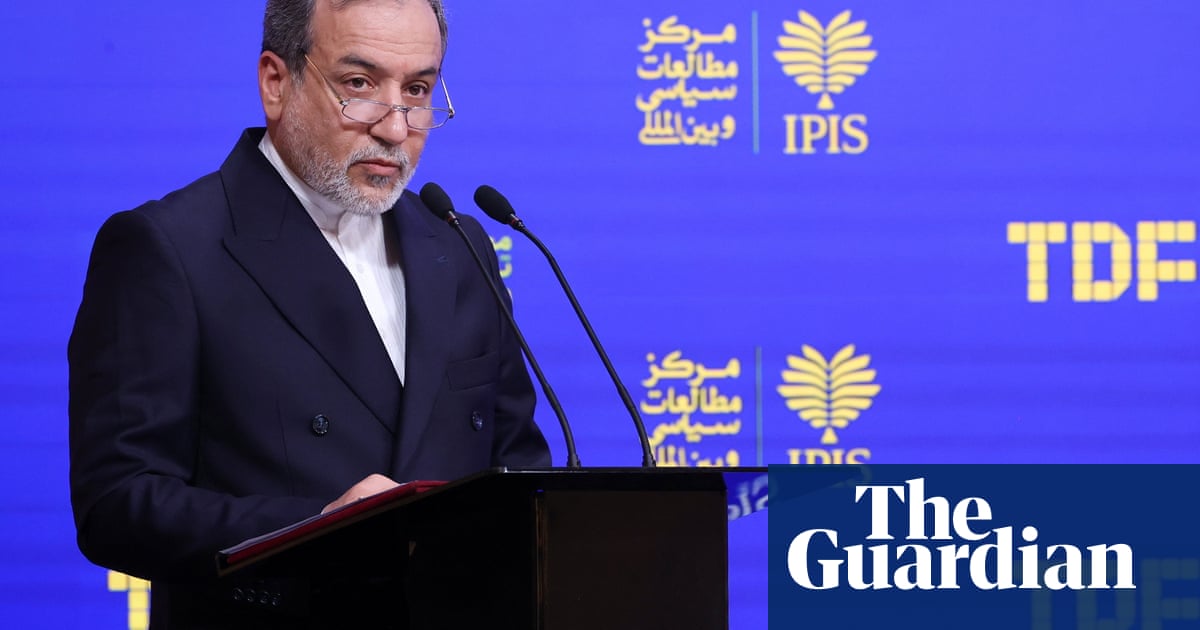Two violent Israeli settlers on whom sanctions were imposed by the UK government this week have joined a campaign to drive Palestinians from their homes in the West Bank village of Mughayyir al-Deir.
Neria Ben Pazi’s organisation, Neria’s Farm, had sanctions imposed by London on Tuesday, as the UK suspended negotiations on a new free-trade deal with Israel over its refusal to allow aid into Gaza and cabinet ministers’ calls to “purify Gaza” by expelling Palestinians.
The British foreign secretary, David Lammy, attacked the “impunity” of violent settlers as he announced sanctions designed to hold them and Israeli authorities to account. “The Israeli government has a responsibility to intervene and halt these aggressive actions,” he said.
Ben Pazi himself was put on the UK sanctions list last year, with the government citing his role building illegal outposts and forcing Palestinian Bedouin families from their homes.
This week he made repeated long visits to an illegal outpost set up on Sunday less than 100 metres from a Palestinian home on the edge of Mughayyir al-Deir, a community of around 150 bedouins.
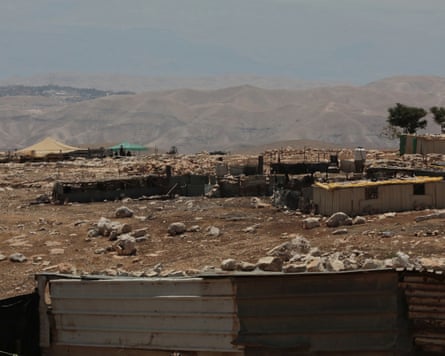
Another visitor to the outpost, photographed on Wednesday and identified by local activists, was Zohar Sabah. He visited the day after he was added to the UK sanctions list for “threatening, perpetrating, promoting and supporting acts of aggression and violence against Palestinian individuals”.
The settlers set up a basic shelter next to a sheep enclosure with a small herd, which formed the base for a campaign of intimidation that began immediately.
“I haven’t slept since they came, and the children are terrified,” said Ahmad Sulaiman, a 58-year-old father of eleven whose home was closest to the outpost.
Born just a stone’s throw away, he had spent his life in Mughayyir al-Deir, but by Thursday he was packing to leave, although the family did not know where they would go.
“The settlers told me: ‘This is our home’,” said Sulaiman. “There is nothing I can do. They have guns and other weapons.”
The intended deterrent effect of the UK sanctions was not visible at Mughayyir al-Deir, where settlers expanded their campaign of intimidation in the days after the British announcement, and the only public response from Israeli officials was a visit in support of the settlers.
Zvi Sukkot, a member of the Knesset and the far-right Religious Zionist party, was filmed by activists as he left the illegal outpost. During a debate on Israel’s Channel 12 last week Sukkot said: “Everyone has got used to the idea that we can kill 100 Gazans in one night during a war and nobody in the world cares.”
The hills nearby are surrounded by the burned remains of Palestinian villages, whose residents were forced out by campaigns run from similar Israeli outposts. But setting up such a short distance from the Palestinians being targeted is unprecedented.
Yonatan Mizrachi, the co-director of Settlement Watch, part of the campaign group Peace Now, said settler outposts had been getting nearer to Palestinian communities since the 7 October Hamas attacks on Israel, “but I don’t remember any others that were established so close”.
“It shows the settlers’ lack of fear, and the understanding that they can do what they like; they can just set up in the Palestinian community. And they didn’t come to be good neighbours,” Mizrachi added.
Sabah was indicted by Israeli authorities in September for his role in an attack on a school in Mu’arrajat East, where settlers targeted teachers, a 13-year-old pupil and the principal, who was hospitalised.
Shai Parnes, a spokesperson for the Israeli human rights group B’tselem, said: “Israeli policy to take as much land as possible hasn’t changed. But what has been changing under this current government is the total impunity for soldiers and settlers.
“They used to hide their faces or attack at night, everything is happening much more brutal and violent and it is happening in broad daylight. They are really proud about what they’re doing, sometimes even uploading the assaults themselves to social media.”
Forced displacement began before the 2023 Hamas attack on Israel and the subsequent ongoing Gaza war, but has intensified since then. Around 1,200 Palestinians, nearly half of them children, have been forced to leave 20 communities, according to figures from B’tselem.
It is a second displacement for families such as Sulaiman’s, who lived near what is now the Israeli city of Be’er Sheva until 1948. They were forced out in the nakba, or catastrophe, in which about 700,000 Palestinians were expelled from their homes in 1948 after the creation of Israel.
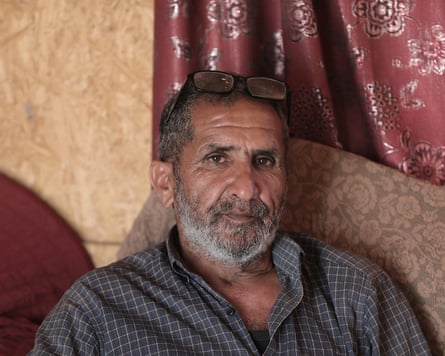
Israel’s military occupation of the West Bank began in 1967. Around 500,000 Jewish Israelis live in “over settlements”, all illegal under international law. Dozens of small makeshift outposts are also illegal under Israeli law – like the one set up in Mughayyir al-Deir – but authorities rarely try to remove them.
Ben Pazi set up his own farm in the area east of Ramallah in 2018 and has been involved in attacks and land grabs in the area for many years, according to the British and US governments.
Most use a combination of attacks on people, destruction of property and deployment of herds of sheep and goats to graze land where Palestinians have fed their flocks for decades.
The US state department said in 2024, when sanctions were imposed on Ben Pazi under the Biden administration: “Ben Pazi has expelled Palestinian shepherds from hundreds of acres of land. In August 2023, settlers including Ben Pazi attacked Palestinians near the village of Wadi as-Seeq.” Donald Trump lifted those sanctions.
Ben Pazi’s violence attracted the attention of Israel’s military commander for the region, Maj Gen Yehuda Fuchs, who issued an administrative order barring Ben Pazi from entering the West Bank in late 2023.
Ben Pazi’s role in the campaign to force Palestinians out of Mughayyir al-Deir was unclear. He hung up when the Guardian called to ask for comment, and did not respond to further messages. The Guardian was unable to contact Sabah.
Ben Pazi was a regular visitor to the new outpost, spending several hours there on at least three days this week, according to several Israeli activists who recognised him from work in the region.
On one visit he was photographed greeting an unidentified man wearing a military-style uniform. Israel’s military did not immediately respond to questions about whether the man was a member of the armed forces, and if so, whether he was at the outpost in an official or personal capacity.
Ben Pazi drove a group of settlers and equipment to the edge of the village, where they started erecting a fence around land where Palestinians had lived and farmed for decades.
Pardes, of B’tselem, said: “The international community have so much more to do in terms of directing steps towards the Israeli government.
“What is happening is not just about a violent threat in this place or that; it’s all part of a well-defended and subsidised policy run by the government.”

 4 hours ago
3
4 hours ago
3
